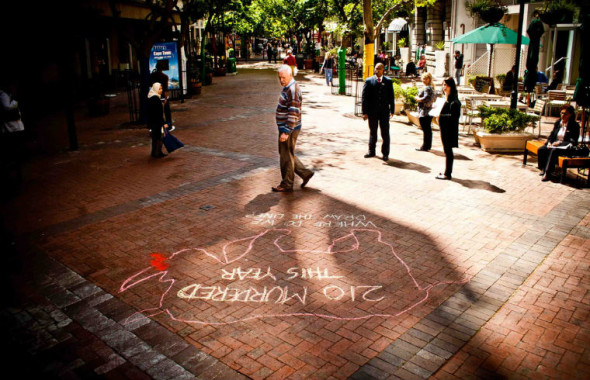TakePart | July 24, 2014
 The decimation of the planet’s wildlife is extracting a high cost on humans as it drives child slavery, human trafficking, and terrorism, according to a special report published Thursday in the journal Science.
The decimation of the planet’s wildlife is extracting a high cost on humans as it drives child slavery, human trafficking, and terrorism, according to a special report published Thursday in the journal Science.
Take poaching. Beyond the horrific impact on vanishing species, the slaughter of rhinoceroses and elephants for their valuable horns and tusks has bankrolled terrorist attacks in Africa by the extremist group Boko Haram.
The severe depletion of fish stocks around the world, meanwhile, has prompted an increased demand for cheap labor in the form of child slavery. That’s because it takes more time, workers, and money to catch fish that are less abundant, according to Justin Brashares, an ecology professor at the University of California, Berkeley, and the lead author of the Science paper.
“Millions of dollars are being spent by the European Union and the United Nations in anti-wildlife trafficking efforts—China started doing this as well—but almost all of [the efforts] are enforcement based,” he said. “They overlook that more than a billion people rely on natural resources for their livelihoods and don’t have any alternatives.”
Brashares wrote in the report that diminished fish stocks can push foreign fishing boats to travel farther for their catch, which puts more pressure on local fish populations. Such competition for scarce resources can lead to violent incidents, such as when Somali pirates attack foreign fishing boats that enter their waters.
Local, national, and international laws that recognize communities’ fishing and hunting rights—also known as tenure rights—are needed to address the underlying poverty driving such illegal actions, Brashares said.
“Fiji is a popular example where local fishing communities were given tenure rights,” Brashares said. “It seems to have worked very well in regulating harvesting and sustainability and allowed communities to be more connected to economic markets. In Namibia, local communities have secured tenure rights to wildlife and have had really positive outcomes in sustainability.”
So what can you do?
Brashares believes the most effective action individuals can take is to use resources such as GoodGuide—which rates the environmental health and safety of consumer products—or the Monterey Bay Aquarium’s Seafood Watch recommendations to identify responsible purchases. Economic decisions have more impact than emails to members of Congress, he said.
“If you say, ‘I can’t find out if my fish comes from slave labor,’ then I say that’s a great role for our nonprofits,” Brashares said. “We can push the Monterey Bay Aquarium to tell us what fish is socially sustainable.”
Photo of Rhino Action Day 2010 protest in South Africa by via fickr/Creative Commons